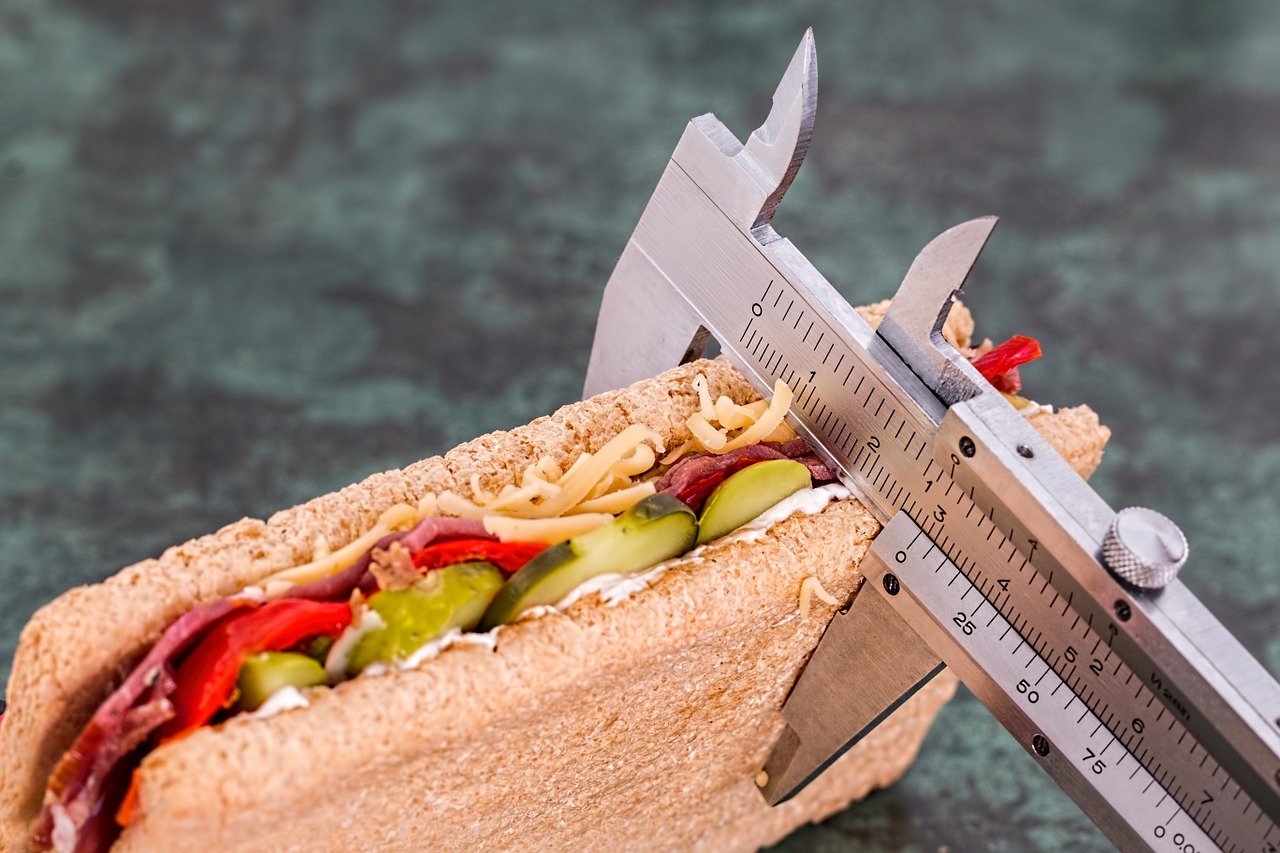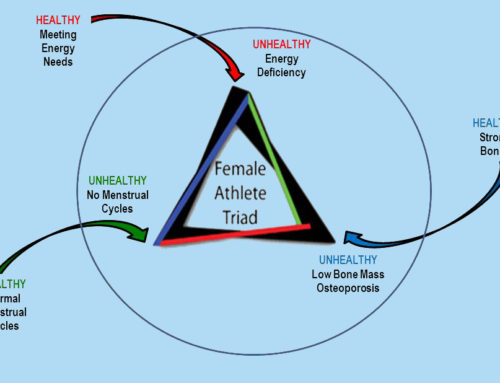We aren’t born with poor relationships with food. We learn them through observations and experiences that cause these poor relationships to develop. In order to avoid and recognize disordered eating, it is best to understand what disordered eating is and what can trigger it. At a time of social distancing, stocking up on food, gym closures, and working from home, now more than ever we need to be prepared to combat some of the toxic society norms regarding food and fitness. It is important to keep in mind that the criteria to fit the category of an eating disorder is very narrow and neglects many behaviors that cause unhealthy relationships with food leading to an energy deficiency.
According to The Academy of Nutrition and Dietetics, “disordered eating” is a term that describes a range of atypical eating behaviors. Disordered eating is not only psychologically taxing, but also it is one of the major pathways to The Male and Female Athlete Triad. This type of behavior can lead to an energy deficit that causes your reproductive system to shut down and bone integrity to be compromised. The following signs and symptoms can indicate disordered eating:
Constant dieting
Anxiety, shame, guilt about eating specific foods
Meal skipping
Chronic weight fluctuations
Rigid routines around food and exercise
Preoccupation with food/weight/body image
Compulsive eating
Using exercise/fasting/food restriction to punish or “make up for” food consumed
Disordered eating can be especially harmful because this relationship can be formed at vulnerable times in our lives– contexts where we feel out of routine and lack of control in other areas.
For example, I am a Division I Track and Field athlete. I always had a very healthy relationship. One season when I was injured and was unable to train and compete normally, I turned to subtly manipulating my food intake to match my new energy demands. I was ignoring the signals my body was trying to tell me and I was restricting food intake. This pattern developed into a preoccupation with food and I couldn’t wait to eat my next meal. Often times, I would be super hungry in the evenings and wanted to eat my whole pantry because all the restriction I had done all day had compiled into a caloric deficit, and my body was rebelling. Sometimes I fought the urge, other times I snacked late, only to feel guilty afterwards but reassure myself that “I will be better tomorrow.”

Moreover, I started a food log where I could write down everything I ate. This worked for sometime, but after a while it turned into just thinking about food even more. After a few months, I realized by unhealthy behavior and recognized my trigger. I knew I couldn’t compare my fitness and skills with my opponents through competition, so I found myself subconsciously judging my fitness from of the way I looked. I wasn’t feeling insecure and I didn’t even realize that what I was doing was unhealthy. I was just trying to be disciplined, but some of my behaviors ended up backfiring. Knowing the definition of disordered eating now, I want others to avoid having to learn the vicious cycle of disordered eating for themselves.
The major concept I learned through my experience with disordered eating is this: Your body is smarter than you think. Read that again. Give your body some credit! When your activity levels are lowered, your body knows how to adjust your appetite to meet its new demands. Don’t try to out-smart it. Your hunger levels may look different day to day, meaning your meals might be different from day to day. Do not put yourself in a box where your meals need to always look the same or get caught in the vicious cycle of caloric deficit—it is not sustainable! Likewise, if you overeat one day because you were cooking or baking up a storm, trust that your body can handle a little caloric surplus now and again. The key is, don’t feel like a failure or feel like you might as well eat the whole box of cookies since you already had two. Additionally, do not feel like you need to eat kale for the next two days to “make up” for anything. Simply return to your normal routine and your body will take care of itself.
 I know many people struggle with disordered eating. Constantly worrying about food is not fun and can even affect those around you when you project your views of food onto them. This was my run-in with disordered eating behavior, but it can take on so many different forms. In this time of the Coronavirus, many of us are home more than normal, perhaps less active than usual, and feeling out of control. During this time, it is important to listen to your body and nourish yourself because food has so many benefits to offer us. Likewise, our exercise should stem from wanting to break a sweat because it makes us feel good—not because you want to look a certain way or because you feel like you need to punish your body. I implore you to show yourself compassion, grace, and remember that we will make it through this time together.
I know many people struggle with disordered eating. Constantly worrying about food is not fun and can even affect those around you when you project your views of food onto them. This was my run-in with disordered eating behavior, but it can take on so many different forms. In this time of the Coronavirus, many of us are home more than normal, perhaps less active than usual, and feeling out of control. During this time, it is important to listen to your body and nourish yourself because food has so many benefits to offer us. Likewise, our exercise should stem from wanting to break a sweat because it makes us feel good—not because you want to look a certain way or because you feel like you need to punish your body. I implore you to show yourself compassion, grace, and remember that we will make it through this time together.





